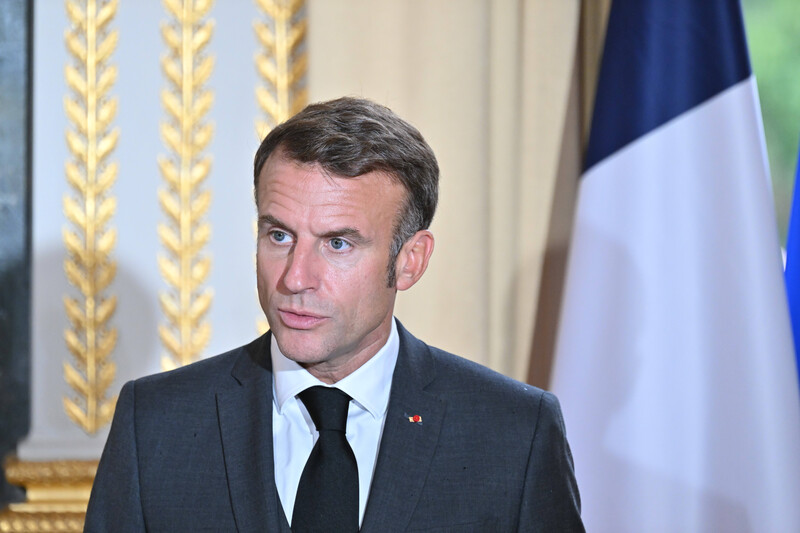Rights and Accountability 8 October 2024

Emmanuel Macron’s claim that France is not delivering weapons to Israel should be treated skeptically.
SIPAFrance is a paragon of peace and restraint. So Emmanuel Macron, the country’s president, wants us to think.
In comments that irked the Tel Aviv establishment over recent days, Macron opposed arms exports to Israel and claimed that “France is not delivering any.”
Figures published by the defense ministry in Paris suggest that Macron’s assurance should be treated with skepticism.
They show that France delivered weapons worth almost $225 million to Israel between 2014 and 2023.
According to an article which the investigative group Disclose published in June, the French weapons giant Thales has confirmed making two deliveries of transponders to Israel this year.
The transponders were to be fitted in drones.
Israel’s supporters promote it as a pioneer in the use of these unmanned warplanes. The Gaza genocide has facilitated an innovative approach to drone deployment, judging by an analysis from the Washington-based Foundation for the Defense of Democracies.
The main drones used against Gaza, the West Bank and Lebanon are produced by Elbit Systems and Israel Aerospace Industries.
Thales has been partnering with both of these firms for many years.
Intriguingly, much of the work has resulted from contracts with Britain, supposedly France’s arch rival.
It is relatively well known that Thales and Elbit Systems have been working together on the Watchkeeper, a drone program for the British Army. Less attention has been paid to cooperation between Thales and Israel Aerospace Industries on the Sea Serpent, a missile system for British naval vessels.
Macron has never objected – at least publicly – to that cooperation.
Setting the agenda
Thales – partly owned by the French state – has been dictating the European Union’s agenda on nourishing the arms industry.
It is represented in an EU “expert group” on developing future weapons.
A report issued by the group earlier this year recommends that selected arms projects should be 100 percent funded from the public purse.
Such thinking is echoed in the stated priorities of Ursula von der Leyen for her second term heading the EU’s executive, the European Commission. She has committed to propose “defense projects of common European interest.”
Top of her list for such projects is an “air shield” which appears modeled on or eerily similar to Iron Dome. That missile interception system is often described as defensive – which is true in the sense that it has proven vital in defending and maintaining the complete blockade Israel has inflicted on Gaza for most of the past two decades.
Thales is not the only big weapons company with a strong influence on EU policy.
Italy’s Leonardo is a member, too, of “expert groups” that make recommendations likely to be included in official blueprints or legislation.
The same Leonardo has been jointly working on torpedoes with the aforementioned Elbit Systems. Leonardo-made guns were used in the German-assembled corvettes with which Israel attacked Gaza in the early stages of the current genocide.
If the European Union was genuinely committed to human rights, it would have imposed an embargo on weapons exports to and imports from Israel long ago. By failing – or, perhaps more accurately, refusing – to do so, the EU has accommodated crimes against humanity, including the crime of genocide.
France, it must not be forgotten, is one of Europe’s largest economies. Despite how Macron has angered the Tel Aviv government, projects connecting France and Israel’s arms industries have not halted.
Nor has Macron pushed seriously for an EU weapons embargo.
Rather, he has been a champion of arms companies who are literally writing the script that decision-makers follow.
It will take more than a few words from Macron to sever the numerous links between these companies and Israel’s merchants of death and destruction.





